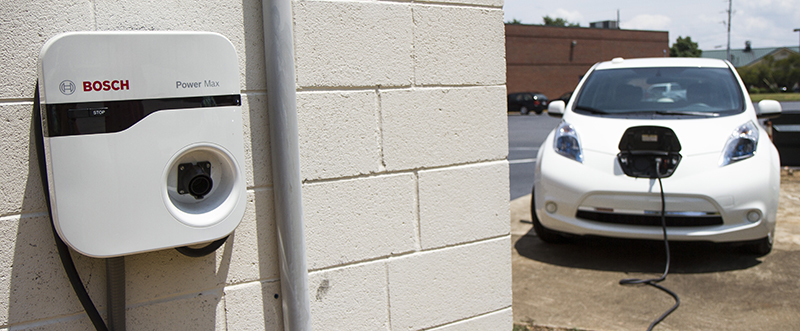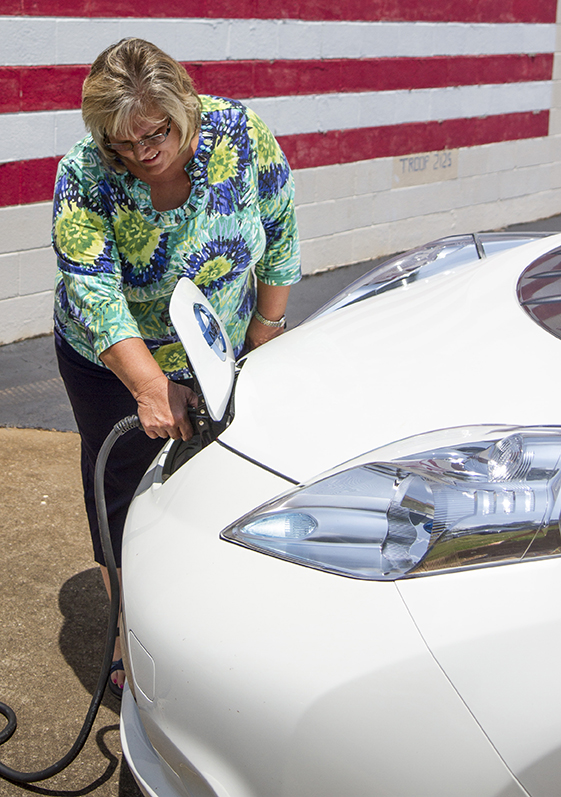Electric vehicles are starting to gain ground and your cooperative has joined the momentum by buying a Nissan Leaf. It already has several hybrid vehicles.
“It just makes sense to add an electric vehicle to our fleet so we can become a better resource for our customer-owners,” said Ron Marshall, Walton EMC’s vice president of engineering. “We can take what we learn and pass it along.”
Electric vehicles have some obstacles to overcome to gain widespread consumer acceptance. But as technology advances, expect huge strides.
 |
Walton EMC has installed a 240-volt aftermarket charging station for its Nissan Leaf. The professionally installed station charges the car in about eight hours. The 120-volt charging station included with the car takes about 20 hours to fully charge the vehicle. |
Currently, the most limiting factor for electric vehicles is their practical travel range on a single charge. That range varies widely by brand and optional upgrades. For example, a standard Nissan Leaf goes about 80 miles per charge, while a more expensive brand like the Tesla delivers three times that – 240 miles – per charge.
The time it takes to get that charge also needs some improvement.
There are three charging options available for electric vehicles. The portable charging station included with the automobile takes about 20 hours per charge. Upgrading to an aftermarket home charging station shortens that time to eight hours.
A commercial “supercharge” station does the same job in about 40 minutes, but is impractical for homeowners. That’s due to the price tag and the 480-volt connection that’s not available in residential electric systems.
For some enthusiasts, owning an electric vehicle is more like a hobby. Stretching distances between charges and mapping road trips based on charging station locations is part of the fun. For others, cost savings take priority. Still others buy an electric vehicle for purely environmental reasons.
 |
Walton EMC Marketing Specialist Cindy Haddon connects the co-op’s Nissan Leaf to an aftermarket charging station. Haddon gets about 70 to 80 miles from one charge. |
Averaging a half charge per day, the typical electric car owner can expect to pay around $24 per month to operate their vehicle. For them, this is much better than forking out upwards of $3 per gallon of gasoline.
Walton EMC offers a special rate for electric car owners to promote the switch from the pump to the grid. Of the 57 customer-owners currently taking advantage of this incentive, 54 of them drive Nissan Leafs.
Electric cars create no emissions, making them a much better choice for the environment. That’s the reasoning behind Georgia’s state tax credit of up to $5000 for buying or leasing an electric vehicle. Another advantage is the lack of motor-driven moving parts that makes oil changes and transmission maintenance a non-issue.
Check out these websites to get more details on electric cars:
Nissan Leaf – nissanusa.com
Tesla – teslamotors.com
An electric car might be a good option if:
- you have a relatively short commute.
- you are environmentally conscious.
- you have a regular schedule.
It’s better to stick with gasoline if:
- you drive more than 80 miles daily.
- you schedule changes frequently.